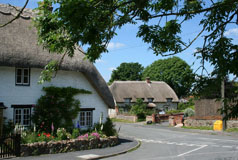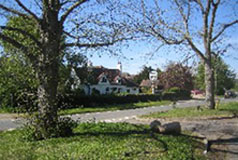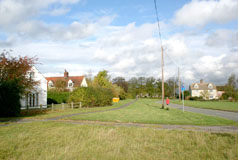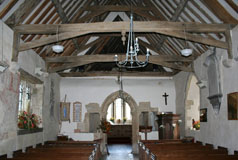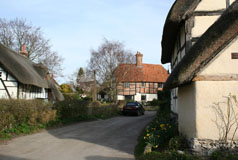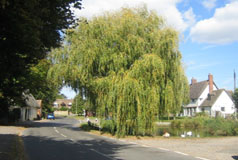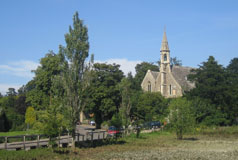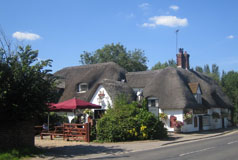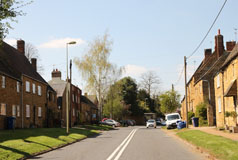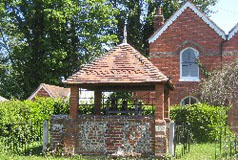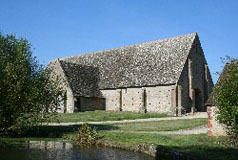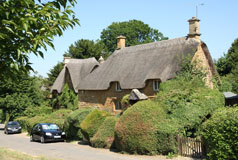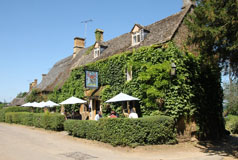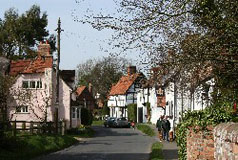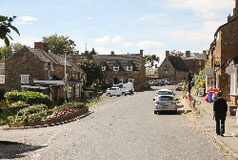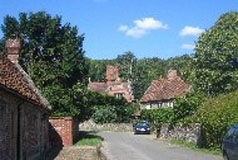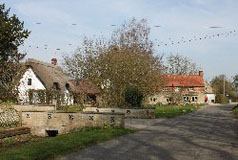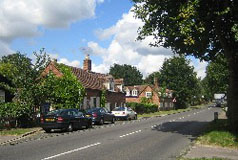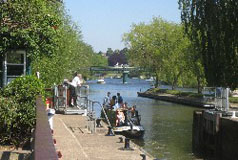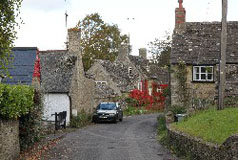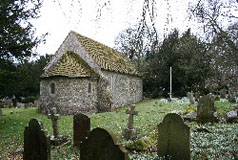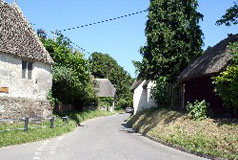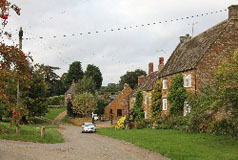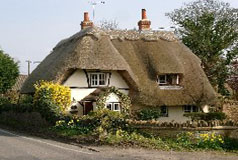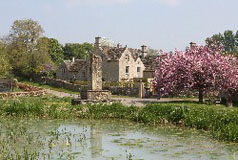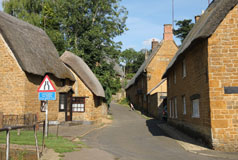KIDMORE END AND GALLOWSTREE COMMON
Kidmore End is a pleasant Chilterns village with most of its houses
grouped around the church and the crossroads. The parish
church is the Church of St. John The Baptist - a Victorian
church with a high dome above the alter. In the graveyard
are the obligatory yews, and here they are magnificant.
Those over the gateway in particular! Adjacent to the
church is the village school, which was established in
1862
A landmark in Kidmore End is the late C19 well with its
pyramidal wood shingle roof standing in the centre of
the road junction outside the church. Although it is no
longer used it is in extremely good condition having been
saved from demolition more than once in its lifetime.
In all, there are some sixteen listed buildings in and
around the village including various cottages and farmhouses.
Gallowstree Common is named after on oak tree that used
to stand away from other trees and was used, as its name
implies, as a gallows. It is thought that the last hanging
was in 1825 for sheep stealing. The tree no longer stands
and its stump was removed at the time of the village enclosure.
Gallowstree Common also has its well and the wellhouse
is a listed building with low red brick and flint-panelled
walls. One side of the wellhouse is completely open for
access to the well and its iron winding gear. There are
two listed buildings in Gallowstree Common, the other
one being The Orchards, which is a Grade II brick and
timber framed house with parts of it dating from the C17.
The
area around Kidmore End and Gallowstree Common used to
be well-known for its cherry orchards.
Kidmore
End and Gallowstree Common are
about half a mile north of the Reading to Wallingford
road, the A4074, and a similar distance south-west of Sonning
Common
